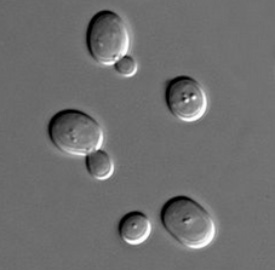Associate Professor, California Polytechnic State University, CA
Baker’s yeast, S. cerevisiae, can be used in biofuel production; however, productive strains need to be able to tolerate increased temperatures and high ethanol concentrations encountered during industrial ethanol fermentation. A recent paper reported results of an RNA-seq experiments comparing gene expression in several yeast strains subjected to heat shock and ethanol stress (1). This paper analyzed gene expression of the laboratory strain and three non-conventional stress-tolerant strains upon exposure to 5% ethanol stress and upon exposure to heat shock (37oC). I will use this dataset for a research project in a ten-week long molecular biology laboratory class. The goal of the project is to identify alleles of yeast genes potentially useful for engineering yeast strains optimized for biofuel production.
Students will use the published RNA-seq data to learn about applications of NGS technology and to analyze strain-specific and stress-specific expression patterns. In the laboratory, students will investigate mechanisms of heat- and ethanol- tolerance in yeast by
In addition, we may be able to test whether expression of sequence variants cloned from wild yeast can impart stress-tolerance to laboratory strains.
1. Wohlbach DJ, Rovinskiy N, Lewis JA, Sardi M, Schackwitz WS, Martin JA, Deshpande S, Daum CG, Lipzen A, Sato TK, Gasch AP. Comparative genomics of Saccharomyces cerevisiae natural isolates for bioenergy production. Genome Biol Evol. 2014 Sep;6(9):2557-66. PubMed PMID: 25364804; PubMed Central PMCID: PMC4202335.
Materials are under development.
Materials are under development.
